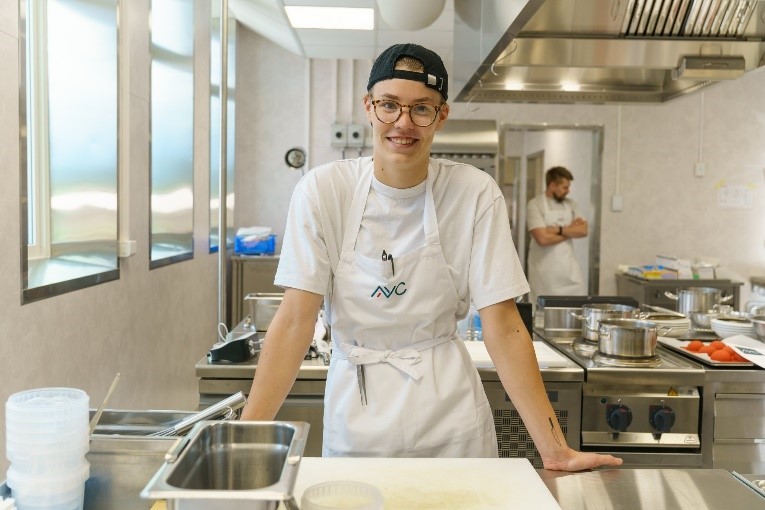How to Avoid Excessive Waste
Foto: Tor Espen Forsmo
By taking part in the AgriCulinary project, I have gained valuable and educational experiences. I have learned a lot about how to utilize the entire raw material and avoid excessive waste. Additionally, I have understood how agronomy and culinary arts are interconnected by seeing where all the ingredients originate.
Through running a youth enterprise, Grønne Chips UB, I was able to incorporate many of the sustainability principles we learned in the AgriCulinary project into the company. We focused on sustainable production in the youth enterprise, and the knowledge gained from the project was immensely helpful.
I have been passionate about food my entire life, and my dream is to make a living as a chef. I aim to pursue big ambitions and work extensively with sustainable food production.
In September, I participated in the competition “Arctic Young Chef,” where chefs under 30 years old from Iceland, the Faroe Islands, Greenland, and the coast of Norway are invited to showcase their local food culture and culinary skills.
The focus of the competition is on using ingredients that are less commonly utilized. In Norway, these include reindeer meat and salted fish.
I had prepared thoroughly and planned a two-course menu. The appetizer was a brandade, a creamy fish puree with potatoes, served on a crispy waffle. The main course was oven-roasted reindeer top round, served with celeriac puree, mushroom sauce, pickled plums, and various types of beets.
Participation in the AgriCulinary Project
I have participated in the AgriCulinary project during both years as a student at the school. I was also part of an exchange trip to Perho Culinary, Tourism and Business College in Helsinki.
Sienna Dahle Pedersen, 18 years old
Currently attending 2nd year of culinary school at Mosjøen Upper Secondary School


